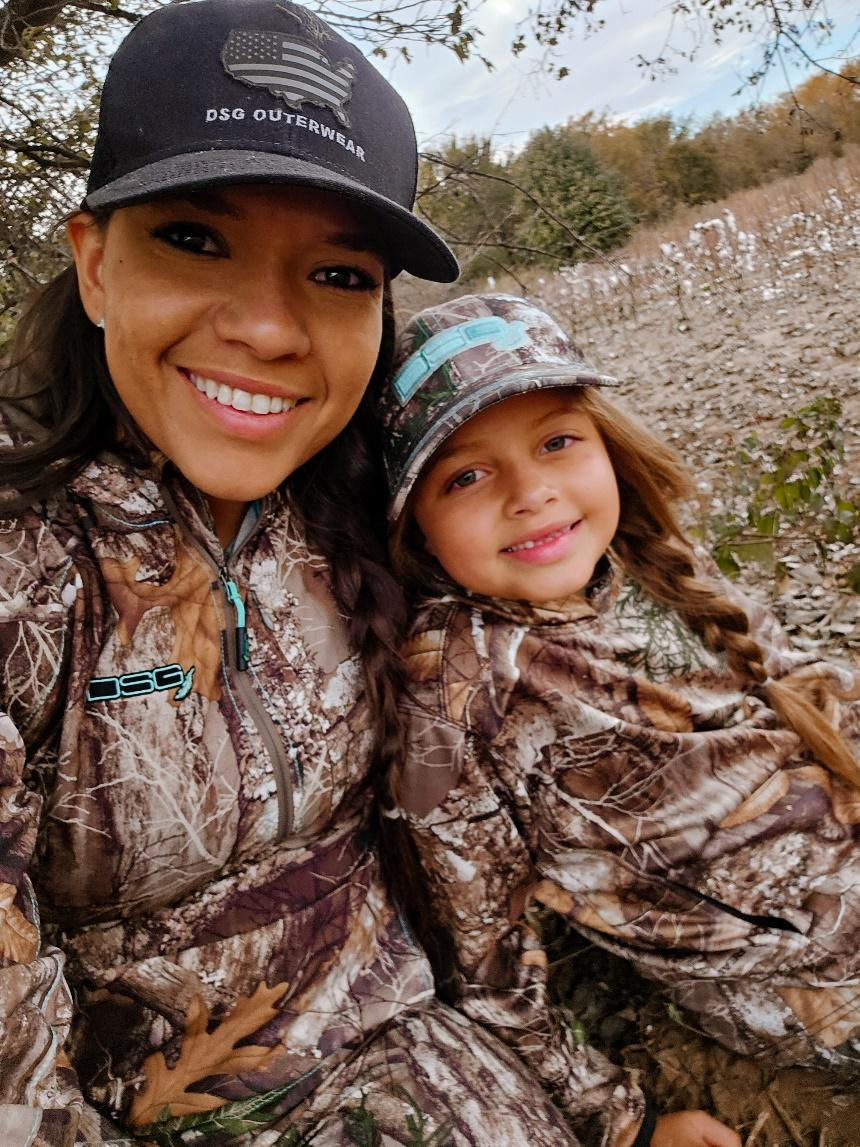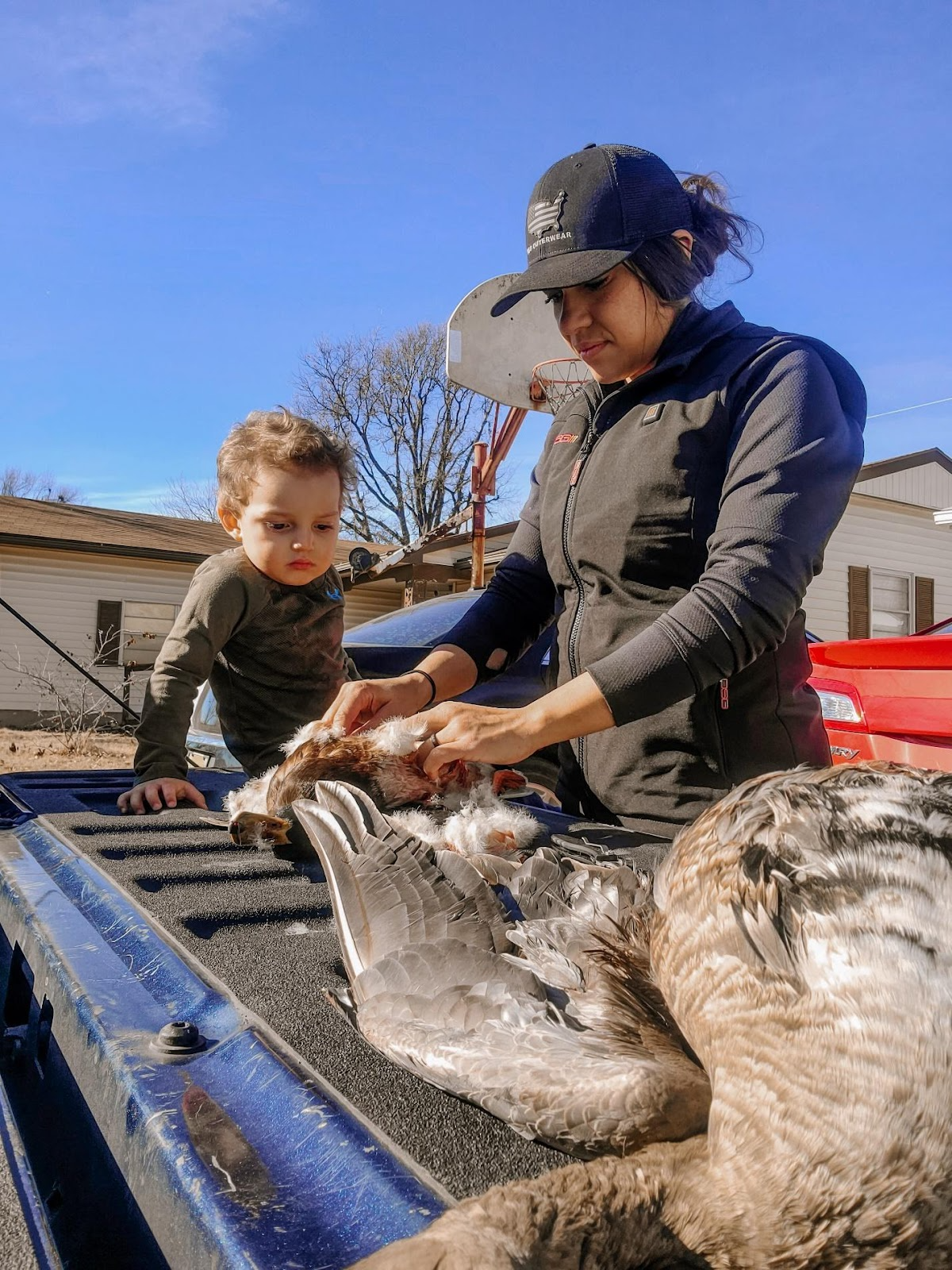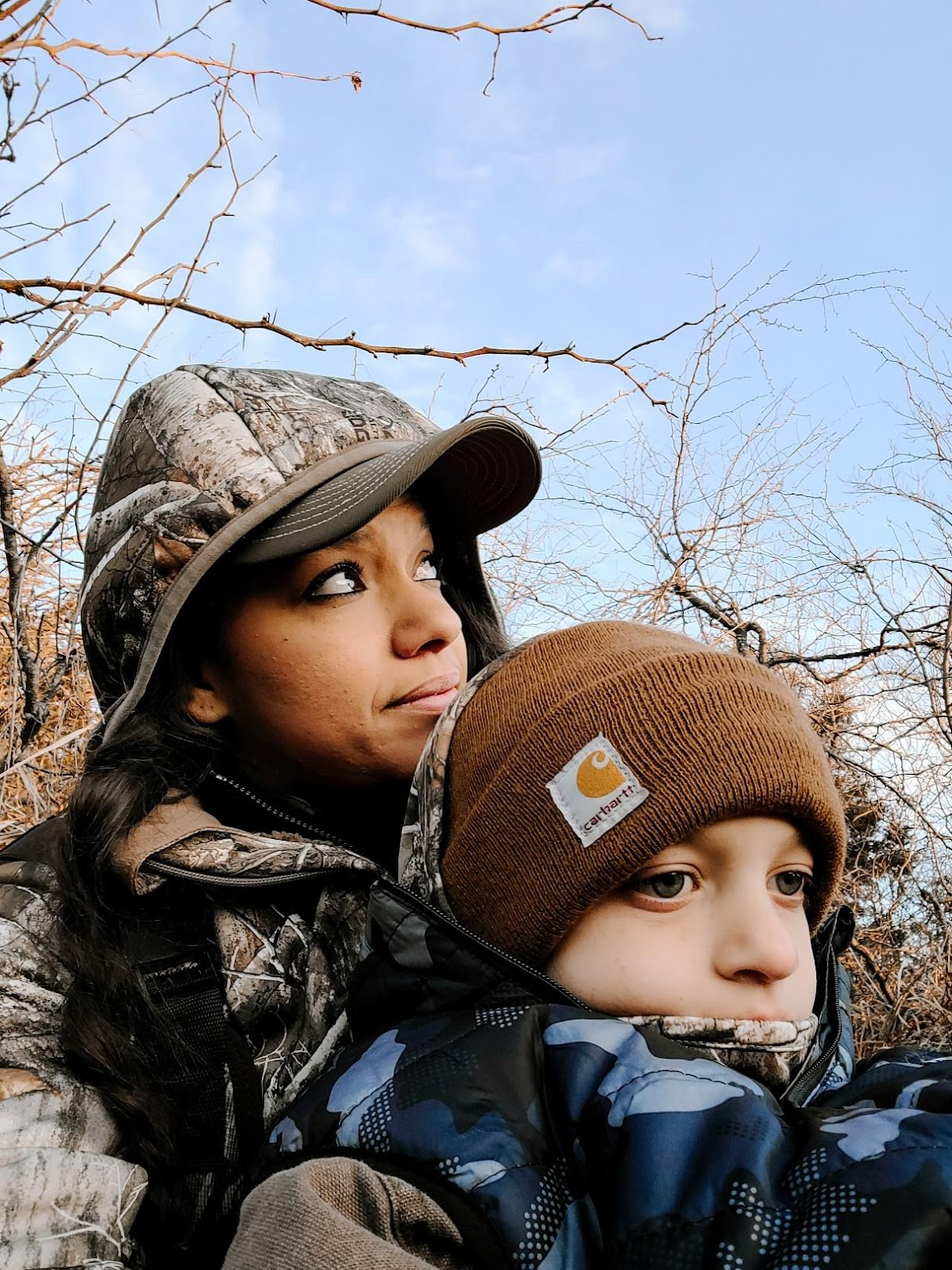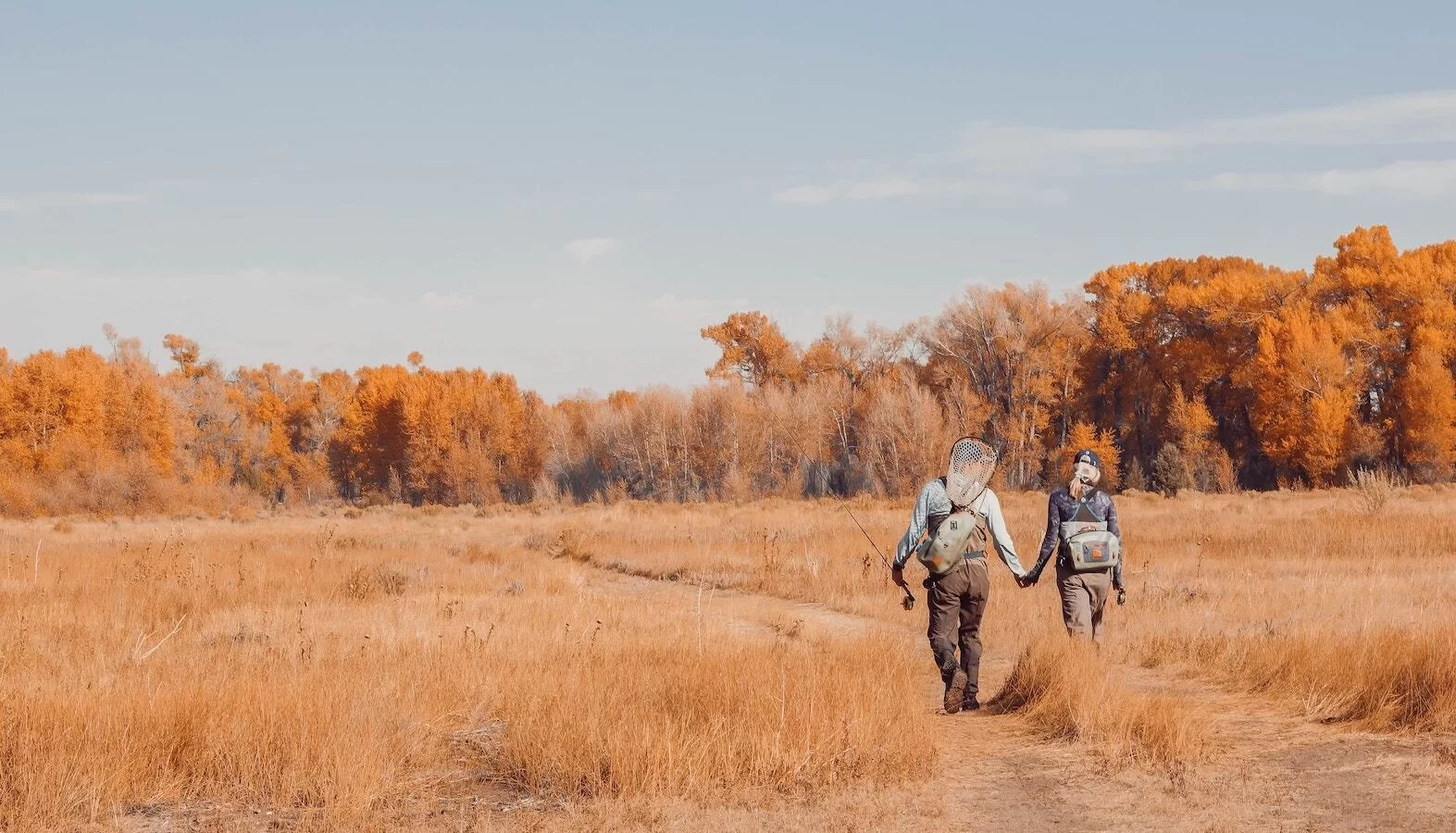Have you considered modern society's relationship with food? Look at the food that is marketed to children. It's convenient, appeasing to the eye, and most likely processed. Introducing the concept of teaching children how to hunt is more than a sport of honing weapon skills and harvesting a kill. It is putting them in direct connection with the life that will nourish them for months to come.

Bethany hunting whitetail with her daughter Peyton. Photo provided by Bethany Beathard
Reconnecting with food sources
Today's convenient lifestyle has created a profound disconnect between people and the origins of their food. A couple of generations ago, food was a tangible part of life. People hunted wild game, raised livestock, and grew and preserved food. Teaching kids about where food comes from is a foundation for a deeper understanding of sustenance. It's crucial to bridge this gap between grocery stores and the natural world, teaching children to comprehend that food doesn't simply appear neatly packaged but comes from the land, the sea or through the efforts of farmers and hunters.

Bethany cleaning waterfowl with toddler overlooking. Photo provided by Bethany Beathard
Lessons learned through hunting
Kids can benefit from hunting in many ways. First and foremost, continually exposure to the outdoors and hunting scenarios fosters a responsibility and respect for wildlife. This is how we bring up a new generation of conservationists. Lessons learned through hunting provide them with opportunities to understand and practice life skills such as patience, perseverance, and self-reliance. It is important to cultivate an appreciation not only for the food harvested but for the effort it takes to acquire it.
Through hunting, our children will grasp the value of life. They will learn and comprehend the circle of life in the most authentic manner. They witness the interconnectedness of wildlife, recognizing the significance of each creature’s role. Children learn to appreciate animals and how they provide nutrients for us. Additionally, hunting teaches empathy and ethical behavior toward animals and their habitats. Personally, I think ethics should be taught with as much authority as safety. By observing and interacting with wildlife in their natural setting, kids develop a deep respect for the environment, cultivating ethical considerations for responsible hunting practices. Understanding the balance and the impact of human actions becomes tangible as they witness the consequences of environmental changes. This, in turn, will contribute to their appreciation for conservation efforts and provoke their participation. Engaging in hunting presents invaluable life lessons that shape compassionate, responsible and environmentally conscious individuals.

Photo provided by Bethany Beathard
Family traditions
Hunting is more than a sport or hobby, it is a tradition and for some a family legacy. Hunting provides opportunities to strengthen family bonds through shared experiences in the outdoors. It is the act of passing down generations worth of knowledge and cultural traditions. There is an importance of hunting as a means of cultural and familial heritage. If not passed on it will all be lost. This is one of the most important reasons for me. I love my rich hunting heritage. I strive to grow my kids as conservationists and activists to preserve hunting rights for the future. If we don’t pass the American hunting traditions on, there will be no one to vote to protect it.
Take the kids and pass it on! Involve them in various processes of hunting scouting, time in the field, processing and meal preparation. Some may even like to learn various types of taxidermy. Organizations are creating hunting heritage programs catered toward kids.
Don’t be afraid to make opportunities to involve the kids—there are countless benefits they will reap from it.
